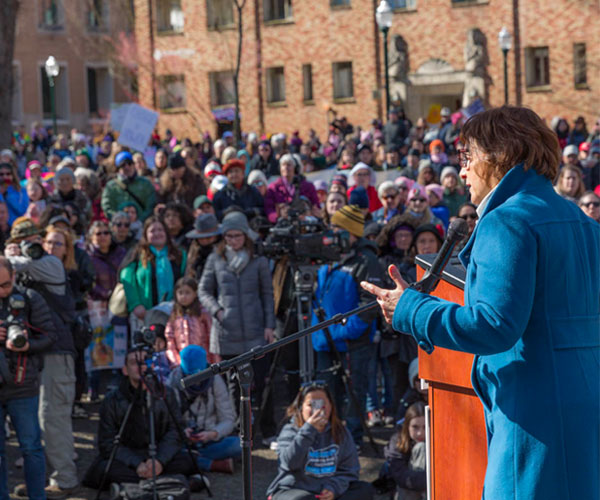A solution for nursing shortages around the country
Nurses are critical frontline workers, but nursing shortages are causing a crisis in already-strained health care systems in Oregon and across the country.
Nearly 100,000 qualified nursing students were turned away from baccalaureate and graduate degree programs in 2021, in large part because of faculty shortages. Significant pay disparity between practicing nurses and nurse educators means fewer are choosing the teaching path. And that puts patients and health care facilities at risk.
Nurses are critical frontline workers, but nursing shortages are causing a crisis in already-strained health care systems in Oregon and across the country.
Nearly 100,000 qualified nursing students were turned away from baccalaureate and graduate degree programs in 2021, in large part because of faculty shortages. Significant pay disparity between practicing nurses and nurse educators means fewer are choosing the teaching path. And that puts patients and health care facilities at risk.
As a co-chair of the Congressional Nursing Caucus, I know that nurses are key to meeting our long-term health care goals. I introduced the bipartisan Nurse Faculty Shortage Reduction Act to close the pay gap and build a bench of educators ready to teach the next generation of nurses. Our legislation focuses on serving vulnerable populations and recruiting and retaining faculty from underrepresented backgrounds with a goal of building a dynamic workforce that can meet our current and future health care challenges.
Nurses play an essential role as first responders through disasters, pandemics, and emergencies. The investments and improved working conditions from this important bill will help grow the nursing workforce so more Americans can get the high-quality care they need.
Thanks for standing with me in support of nurses and nurse educators,
Suzanne



